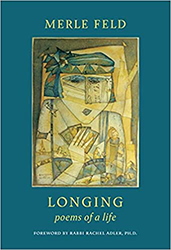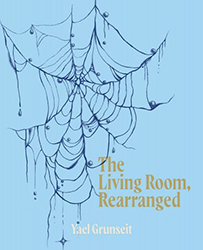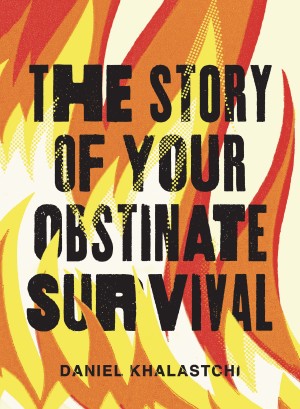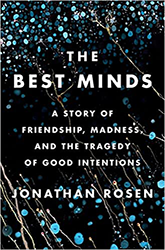About a quarter of the way into Carlie Hoffman’s startling collection, we are warned that the poet’s heart “is full of horses.” With this statement, Hoffman invokes the image of untamed, fast-running animals, all corralled into one space. It’s an apt description for her complex, challenging stampede of poems, whose lines are at every moment poised to run in at least four directions (Four Way Books is the appropriately named publisher of these runaway poems).
The collection begins with a departure from New York, and the loss of an unnamed beloved. Like the moon, the poet promises to retract into “an unconditional orb of light.” But rather than contracting, her focus expands as other losses emerge in wild, equine fashion: a mother as hard to access as a frozen stream; languages that the poet cannot speak but that belong to the family history; and a river in Poland where dead aunts hold siddurim.
The second and third sections of the book veer purposefully into the history of the poet’s family. Partially remembered fragments of different historical moments are yoked together with photographs, newspaper article quotes, and snippets of German. What keeps it all intelligible is the power of Hoffman’s lyrical, exuberant language:
I drop off the menus one last time am a handful
of quits in the park I read the newspapers all about cold I quit cold I,
a consequence I run out of. I run out of clean underwear
clean hair rain comes I slam the door turn back I quit
Elsewhere, Hoffman turns traditional forms inside out, as she does with an elegy to Paul Celan’s young cousin, the poet Selma Meerbaum-Eisinger.
All throughout When There Was Light, Hoffman defamiliarizes the usual poetic procedures of lost love, problematic parents, a city that is hard to live in, and even the complexities of her own Jewish history — forcing the reader to linger on fragments and reassemble images in fresh combinations. Reading her poems is a little like learning a foreign language. One resists the new interactions between words, then grows accustomed to their strangeness and luxuriates in their surprising beauty.
Stephanie Barbé Hammer’s is a 7‑time Pushcart Prize nominee in fiction, nonfiction, and poetry. Her new novel Journey to Merveilleux City appears with Picture Show Press.





